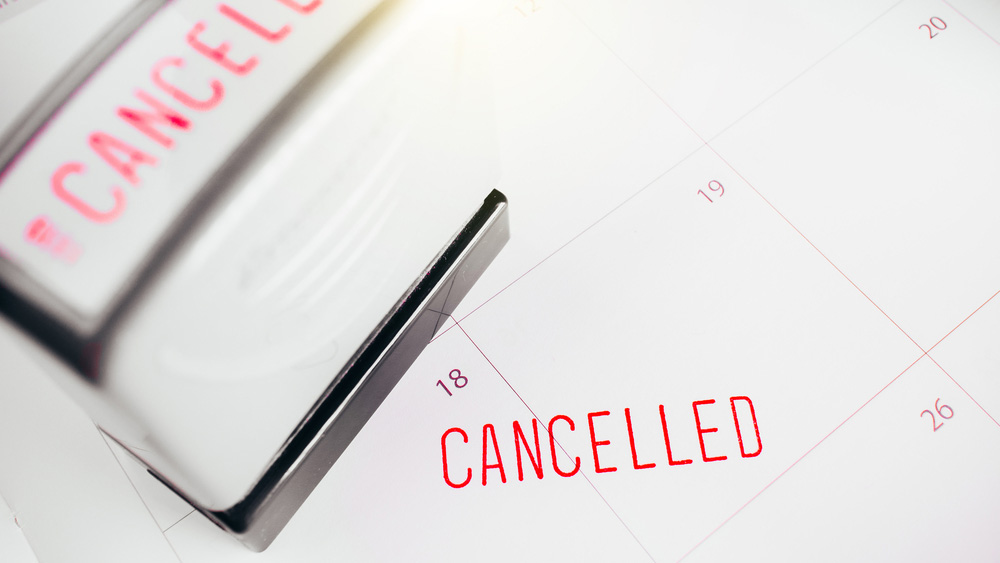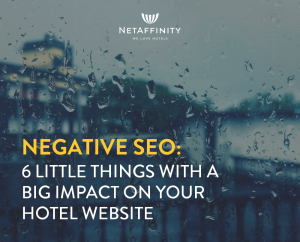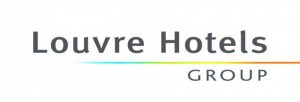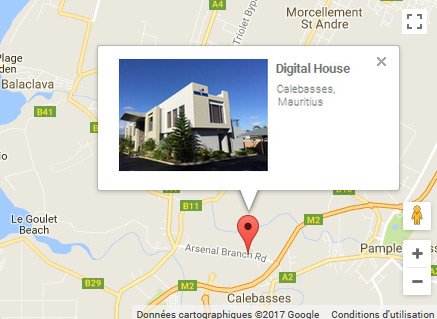Hotel CEOs Love Direct Booking But They Have Varied Views About Strategy
Whether you choose to view it as a war or not, it’s fairly unanimous that nearly every hotelier wishes he or she would have more direct bookings versus bookings made through an online travel agency.
Earlier this month, Hyatt Hotels & Resorts surprised many in the hotel industry when news leaked during its current contract negotiations that the company was threatening to abandon Expedia and its numerous online travel agency sites.
If Hyatt makes good on its threat and it doesn’t come to terms with Expedia then that might mean consumers would no longer be able to book a Hyatt hotel on Expedia and sister sites, including Hotels.com, Travelocity, Orbitz, and Hotwire, among others.
Hyatt’s potential move would be just one of many recent efforts hotel companies have launched in recent years to win the so-called direct booking wars or, in other words, to get more consumers to book directly on their own sites. Online travel agencies often charge chain hotels a commission ranging from 10 to 20 percent.
The height of these efforts by Hyatt and its peers seemed to peak last year, especially when Hilton debuted its largest-ever advertising campaign called Stop Clicking Around. Hyatt, Hilton, Marriott, Choice, and others also began offering discounted room rates for their respective loyalty members.
Fast forward one year later, and most hotel CEOs remain bullish about their efforts to push more direct bookings, and their success with member-only rates.
“Certainly, it’s better for the industry to do direct booking,” said Stephen Rushmore, CEO of HVS Global Hospitality Services, a hospitality intelligence business. “That seems to be happening. It happens in the airline industry now most regularly, so I think that the number of hotel brands that are having campaigns toward loyalty programs and direct booking and so forth — from what I’ve heard from senior people in those organizations — have been quite effective.”
Rushmore thinks hotels need to press ahead with these campaigns.
“I think it’s one of those things that they just have to keep on pushing and keep on campaigning. You can’t just do a one-time campaign in order to really get the consumers to change their behavior.”
Joyce’s Warning to the Online Travel Agencies
Stephen Joyce, CEO of Choice Hotels, said that his company’s member rates have been very successful since launching them last year, when speaking to Skift at the annual NYU Hospitality Industry Investment Conference.
“We’re also doing preferred rates for our members that aren’t available anywhere else,” Joyce said. “I think we’re finally in a position where we’re going to start eliminating the misperception, on the consumers’ part, that the lowest rates available are anywhere else other than ChoiceHotels.com, and we’re making really strong headway because we can see it in the numbers.”
Choice will continue to market the value of direct bookings.
“We’re going to do a lot to market and advertise around that,” he said. “For the first time in a long time our proprietary growth rate is higher than OTA growth rate, and we think we’re in a position to actually shrink the OTA contributions. Not that we don’t want the OTAs.”
Joyce said the last time Choice Hotels entered into contract negotiations with the online travel agencies was two years ago but that Choice and the travel agencies have had discussions since.
He added, “They’re not happy with their own situation. Their view is they’ve gotten a little more aggressive, while we’ve reminded them what the contract says and what we’ll do to them if they don’t behave. That has led to a mutual respect on both sides.”
Kong Thinks Smart Partnerships Are Worthwhile
David Kong, Best Western Hotels & Resorts CEO, said that while the bigger companies such as Hilton and Marriott have seen success in their direct booking campaigns, that success doesn’t necessarily trickle down to independent hotels.
“There are some, like Marriott and Hilton, who might have done a very good job with their direct booking and member rates, and their commissions [paid to the online travel agencies] might have stayed the same or have gone down, but then there are all the other hotels’ whose commissions have gone up a lot,” Kong said, citing CBRE Hotels’ Americas Research recently released 2017 edition of Trends in the Hotel Industry report.
That report found a 6.8 percent increase in commission payments in 2016 made by hotels to travel agents, online travel agencies, and other intermediaries.
“As an industry, on average, it’s gone up, but that’s no indication that Hilton or Marriott, who have been the forefront of this strategy, have seen an increase,” Kong said.
For Best Western, the best strategy is to form more strategic partnerships with online travel agencies, Kong said.
“From Best Western’s perspective,” he said. “we think OTAs are an dispensable partner. In this day and age, they are so well-known and so sought after. People want to go to OTAs, if not to make booking, at least to do their research. It makes the location, in terms of the types of hotels and price points, in certain locations, so transparent. A lot of people will use them for research and for ease of booking, and they might just book on those websites so they have become indispensable.”
So, although Kong, like his peers, wishes his hotels could see more direct bookings, he knows that online travel agencies are invaluable.
“The last thing we want to do is to treat them like an indispensable partner,” he said. “We want to work with them to see how we can create a win-win situation. Many of them are trying to launch their loyalty programs, so why don’t we work with them to also launch our loyalty program rates? They would have loyalty program rates and we would have loyalty program rates. How can we facilitate that kind of partnership? That’s what we’ve achieved.”
Kong explained how Best Western’s version of member rates works:
“We have worked out an agreement where we can each do that. Both of those rates are gated, meaning that you will have to sign-in in order to be able to see the rates and you have to enter all your credentials to be able to book those rates.”
Kong wouldn’t detail the level of discount that Best Western gives to loyalty program members but said the discounts are “very substantial.”
“They are higher than all the other brands because we think, in order to make our loyalty program differentiated, we will offer real value, aside from the earnings and redemption side, we also want them to feel like they have benefits. So the Best Western rewards members will always see a substantial discount on their rates, even on promotional rates, like advance purchase rates. They will see a better discount if they book through the Best Western rewards program.”
Red Lion Is Happy to Keep Working with Online Travel Agencies
Like Best Western, Red Lion Hotels has taken a different approach to working with online travel agencies than Hyatt or Hilton.
Last year, Red Lion announced it would offer its member-only rates on Expedia.com and Hotels.com. Consumers who book on those sites will be automatically enrolled in Red Lion’s Hello Rewards program, and Red Lion receives the consumer’s email information directly from Expedia and Hotels.com.
“Last August, I think, there was some criticism that it was either a brilliant move, or a very stupid one,” RLHC CMO Bill Linehan said. “I think the former has proven much more so. We’ve increased our customer acquisition quite a bit. We’re seeing our Hello Rewards members paying a premium. We are also seeing greater loyalty. We are seeing, as a percentage of those customers that came through Expedia and signed up for Hello Rewards, we’re seeing the repeat factor.”
Linehan is seeing interesting consumer booking patterns.
“What’s really interesting is within that repeat factor, there’s some that are continuing to book through Expedia, because that’s how they want to book,” he said. “We’re also seeing some take advantage of some of these great offers that we’re offering, and booking direct with us. So, it proves the notion of the customer acquisition. It’s also allowed us to have more serious conversations with some other OTAs, and we’ll be making some very promising announcement there as well. …
“You know,” Linehan added, “consumers click around.”
Linehan said that trying to change consumer behavior, to shift travelers away from booking on sites like Expedia or Booking.com, is in some ways, futile.
“In fact, there’s a recent study that, particularly for leisure travel, 45 days out from their travel, [consumers] click around 140 times,” Linehan said. “That’s a lot of clicking around. This information is available to us on multiple devices and every place we are all the time. Recognizing that an OTA is where consumers go to book, isn’t that a mass-market merchant marketplace?”
Which is why Red Lion is investing in working with online travel agencies, as well as in marketing.
“As a marketer, it’s my job to make certain that we’re in that mass-market marketplace, and that we stand out from the crowd in that mass-market marketplace,” Linehan said. “That means many things. It means our organic search, and listing, and or rank. It means our promotions and campaigns, are they also offered there? It means, is there a way that when we stand out, that when someone is making a selection, we’re there and we’re converting? We are.
Linehan said Red Lion has increased its “conversion quite a bit, and we are now looking at other mass-market marketplaces, and looking at some other opportunities and things that we can do.”
Red Lion may form similar partnerships with other online travel agencies, Linehan hinted.
“It’s not necessarily the exact same thing with all of them, but we will be making an announcement, literally, within weeks on what are some of those things that we’re doing with these other mass-marketplaces,” he said. “Does this mean that we’re not encouraging book direct? Of course not. We still are. What it really means is we’re not telling customers how to book us in only one way. We’re saying, ‘We want to accommodate you anyway you want to book us,’ which is a big difference.”
IHG Americas CEO Thinks Direct Bookings are bout Loyalty
Elie Maalouf, CEO of InterContinental Hotels Group (IHG) in the Americas, said the chain’s position on direct bookings remains unchanged from last year, and that it’s not just about direct bookings, either. It’s about building loyalty, too.
“I think our position is the same as it was last year from the beginning of when we launched our preferred member rate, which isn’t the launch of direct bookings,” he said. “I think somehow, it’s become reported that hotel companies have launched direct booking. Actually, at least at IHG since the days of Holiday Inn, we’ve always had direct bookings. In fact, at one point, it was the only way you could book, right? You had to call the hotel directly to get your booking.”
Direct booking-related benefits, he said, are only a portion of the perks for loyalty program members, Maalouf said.
“Member rates are just another feature that we’ve added to our rewards members, which is an even lower rate if they book direct. But, we give our long-timers a lot of other promotions and a lot of other benefits. They get points. They get benefits. They get upgrades. They get early check-in. They get late check out. They get this and that so it’s just another benefit for our loyalty members, a substantial one and yes, they get a lower rate if they book direct and we think it makes sense for them and for us and for our owners.”
Direct booking and rewards will always be part of IHG’s loyalty program, he said.
“But, in and of itself, it wasn’t the inception of direct booking and it won’t be the only thing that occurs either as a benefit to our loyalty members, to whom we keep adding features, like Uber membership and a Shell partnership for fuel etc., Maalouf said. “And it also won’t be the only feature around direct booking. Both will continue to be mainstays of our guest relationship. Direct booking will always be a mainstay and loyalty preferences and rewards and benefits will be a mainstay. And sometimes they intersect as they did there, and sometimes they’ll be separate benefits.”
Source:skift.com

 To entice consumers to book early, OTAs frequently advertise a free cancellation policy. Along with booking well in advance, the same tactic is used to encourage consumers to book multiple properties, which they can then choose from later.
But this all comes at a heavy price for hotels. Guests are incentivized to book without worrying about whether they’re certain about their choice. After all, they can always cancel if they change their mind. Unsurprisingly, this tactic has led to notoriously high OTA cancellation rates.
These rates vary significantly among the OTAs. For instance, hotels on Booking.com, (which heavily promotes their free cancellation policy), experience cancellation rates of around 40%. In contrast, hotels on Expedia (which doesn’t heavily advertise this policy) see a cancellation rate of about 20%.
Overall, approximately one in five online hotel bookings are cancelled, causing major headaches for hotel revenue managers everywhere.
On top of hurting a hotel’s bottom line, a property that relies heavily on OTAs for bookings will find it tough to make good revenue management decisions when so many of these bookings are cancelled.
Fighting back against this issue begins with having a better understanding of the booking and cancellation patterns OTAs employ, and then using proper revenue and rate strategies to combat them. Here are five tips worth considering:
To entice consumers to book early, OTAs frequently advertise a free cancellation policy. Along with booking well in advance, the same tactic is used to encourage consumers to book multiple properties, which they can then choose from later.
But this all comes at a heavy price for hotels. Guests are incentivized to book without worrying about whether they’re certain about their choice. After all, they can always cancel if they change their mind. Unsurprisingly, this tactic has led to notoriously high OTA cancellation rates.
These rates vary significantly among the OTAs. For instance, hotels on Booking.com, (which heavily promotes their free cancellation policy), experience cancellation rates of around 40%. In contrast, hotels on Expedia (which doesn’t heavily advertise this policy) see a cancellation rate of about 20%.
Overall, approximately one in five online hotel bookings are cancelled, causing major headaches for hotel revenue managers everywhere.
On top of hurting a hotel’s bottom line, a property that relies heavily on OTAs for bookings will find it tough to make good revenue management decisions when so many of these bookings are cancelled.
Fighting back against this issue begins with having a better understanding of the booking and cancellation patterns OTAs employ, and then using proper revenue and rate strategies to combat them. Here are five tips worth considering:

 describe an attack on your website by a competitor to lower your SEO, this can take the shape of spammy links being built to your site, hacking, or content duplication just to name a few common ones.
While it’s important to be aware of the potential external threat, your competitors are not the only secret SEO assassins you should be looking out for. You may be damaging your own SEO and not even know about it!
There are a number of ways to protect yourself from an external or self-inflicted sabotage. Here are 6 things you definitely shouldn’t be doing if you want to avoid a damaging attack or self-sabotage to your hotel’s website.
describe an attack on your website by a competitor to lower your SEO, this can take the shape of spammy links being built to your site, hacking, or content duplication just to name a few common ones.
While it’s important to be aware of the potential external threat, your competitors are not the only secret SEO assassins you should be looking out for. You may be damaging your own SEO and not even know about it!
There are a number of ways to protect yourself from an external or self-inflicted sabotage. Here are 6 things you definitely shouldn’t be doing if you want to avoid a damaging attack or self-sabotage to your hotel’s website.

 Ten Years After as a kid, this is not about music, this is about the 10 year anniversary of the technology explosion caused by Facebook, Twitter, iPhone and Android.
Ten Years After as a kid, this is not about music, this is about the 10 year anniversary of the technology explosion caused by Facebook, Twitter, iPhone and Android. brand, as part of an initiative to roll out new-age hotels that are more lifestyle-oriented and better suited to meet the needs of today’s travelers.
brand, as part of an initiative to roll out new-age hotels that are more lifestyle-oriented and better suited to meet the needs of today’s travelers.
 When you’re checking the financials one minute and tasting new
dishes in your restaurant the next, you cannot afford to be a specialist,
you need to be generalist, hence the title.
When you’re checking the financials one minute and tasting new
dishes in your restaurant the next, you cannot afford to be a specialist,
you need to be generalist, hence the title.
